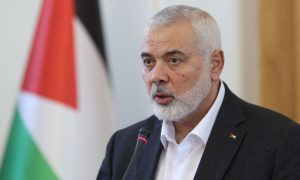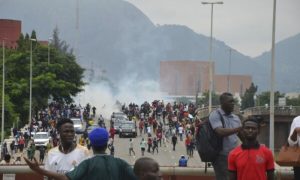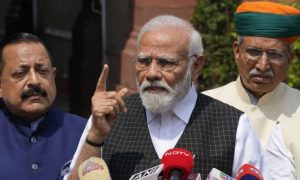ISLAMABAD: The Supreme Court of Pakistan has ordered that the Election Commission of Pakistan’s (ECP) verdict of allocating reserved seats to the ruling coalition was unconstitutional, local media reported on Friday. The decision was announced by a Full Court led by Chief Justice Qazi Faez Isa, and comprising Justices Syed Mansoor Ali Shah, Yahya Afridi, Munib Akhtar, Jamal Khan Mandokhail, Aminuddin Khan, Ayesha Malik, Muhammad Ali Mazhar, Syed Hasan Azhar Rizvi, Athar Minallah, Shahid Waheed, Irfan Saadat Khan, and Naeem Akhtar Afghan.
The decision said that the PTI was eligible for reserved seats. It suspended the previous verdicts of the Election Commission of Pakistan, Peshawar High Court about the allocation of reserved seats.
“The PTI was a political party, remains a political party”, the order stated while instructing the PTI to submit a list of its reserved seats candidates within fifteen days.
Earlier, the Supreme Court of Pakistan reserved verdict regarding a case involving the opposition Sunni Ittehad Council (SIC)’s claim to reserved seats in the National Assembly and provincial assemblies.
The registrar of the apex court has issued a cause list, indicating that the highly anticipated verdict will be announced at 12:00pm today.
The 13-member full bench, chaired by Chief Justice Qazi Faez Isa, conducted a second consultation session yesterday, lasting about ninety minutes. This followed an earlier meeting on Wednesday, also chaired by Chief Justice Qazi Faez Isa.
The appeal was filed after the Election Commission of Pakistan (ECP) rejected SIC’s request for allocation of its share in the 70 reserved seats in the National Assembly and an additional 156 seats in the four provincial assemblies.
The SIC gained prominence when independent candidates supported by the Pakistan Tehreek-e-Insaf (PTI) party joined its ranks after winning elections, as jailed former Prime Minister Imran Khan’s party, was unable to contest and claim reserved seats for women and minorities. The allocation of these seats was based on proportional representation.
The ECP denied SIC’s plea for reserved seats on grounds that it did not participate in the elections and only gained strength when independently elected PTI-backed candidates joined later. After the Peshawar High Court dismissed its appeal, SIC challenged the decision in the Supreme Court, where a 13-member bench, headed by Chief Justice Faez Isa, heard the case.
At the conclusion of the proceedings, Chief Justice Isa announced that the bench had reserved its verdict after mutual consultation, without specifying a date for the judgment’s announcement.
The Supreme Court’s decision will also impact the fate of 77 reserved seats, previously held by candidates from other parties whose victory notifications were suspended by the ECP following a May 6 ruling by the Supreme Court in favour of PTI.
While the judgment’s outcome may not alter the current power dynamics significantly, changes in the assembly’s overall composition could influence legislative processes in the country. The issue for PTI began when, just before the general election, it lost its cricket bat symbol due to non-compliance with intra-party election rules set by the ECP, forcing the party to field candidates independently.
These candidates later joined SIC in an attempt to secure their rightful share of reserved seats, a plea initially rejected by the ECP citing procedural non-compliance by SIC.
























